Championing waste management, apartments in Bengaluru are restoring cleanliness in the city
Once known as the ‘garden city’ of India, Bengaluru has gradually turned into the infamous ‘garbage city’. Today, to make things better, many apartments in Bengaluru have taken to segregation and composting of waste.
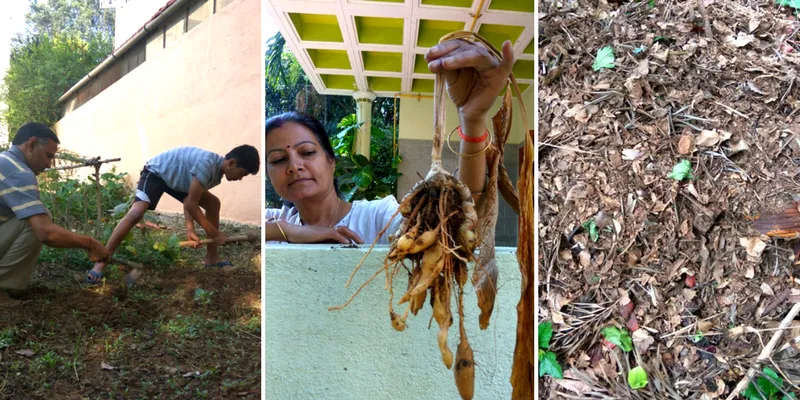
Due to the growing amount of garbage in Bengaluru, Bruhat Bengaluru Mahanagara Palike (BBMP) back in 2012 announced that apartments in the city need to segregate and compost their own waste. As apartments are known to be the ‘bulk generators’ of waste, this step was deemed necessary to reduce the burden on landfills, and on the daily garbage collectors for whom it is difficult to collect such huge amounts of unsegregated waste.
Apprehensive about setting up their own garbage processing units, apartments stated practical difficulties such as lack of space and heavy investments for installing a composting unit. But over the years, understanding that processing, segregating and composting your own waste can only do good to the environment, many apartments stand witness to waste management success stories in the city.
Each doing their own bit to make a bigger impact
Recognising how garbage issues take an ugly turn, apartments in Bengaluru are making small contributions to bring about a bigger change.
Simmi Kumar (45), a member of the Heritage Green Club, shares the positive steps that Heritage Apartments has taken to manage waste through correct methods.
With over 600 flats, we decided that if we came together and managed our own waste, we'd not only benefit our city but also our immediate surroundings, Simmi remembers.
The residents began by installing an Organic Waste Converter (OWC), a wet waste processing unit, and formed a green club comprising of ladies who actively helped in streamlining the segregation process. “We started segregation in January 2015 by banning the use of polybags inside Heritage, and divided waste into three categories: wet, dry, and medical,” says Simmi.
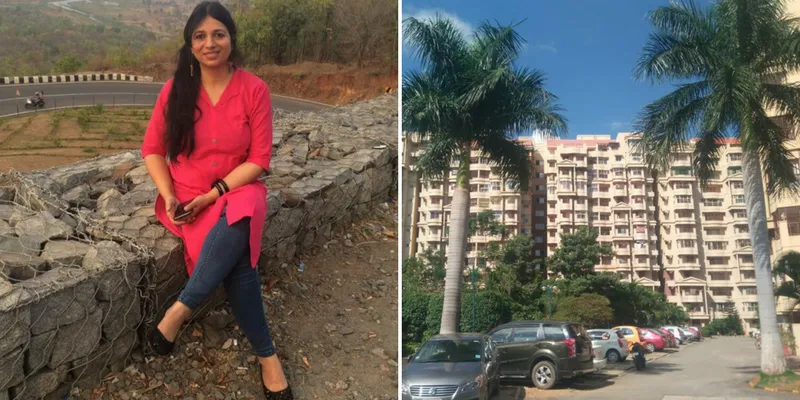
By issuing notices and mails to residents, they were successful in seeking their cooperation in segregation. Heritage Apartments today has a fully functional waste-management system.
Ameet Patil, Secretary, Elegant Pride Apartment, started waste segregation at his home in 2011. “I chose to do so once I understood why villages objected to the dumping of garbage in their vicinity. It made sense that wet waste can be used for making compost and then to fertilise plants,” he says. Implementing the same practice at Elegant Pride in 2016, representatives were appointed to train staff on segregation for all 120 flats. With three main bins for wet, dry and reject waste kept in each household and in the compound, segregation of waste has been a success at Elegant Pride.
Moving one step further
Many apartments have started to use the same compost to grow their own food and also to sell it to farmers. One such success story is that of the community at Rainbow Drive.
K.P. Singh (51), an environmental activist and resident of Rainbow Drive, quit his job to begin working on the basic issues of clean air, water, and food.
I started the change from self and gradually expanded it to family and my community, i.e. Rainbow Drive.
'My waste is my responsibility' and 'there is no waste if managed in a responsible manner’ — with this belief, K.P. Singh and members at Rainbow Drive took it upon themselves to deal with waste responsibly and turn this liability into an asset. Today, they produce hundreds of kilos of what they call ‘precious’ compost out of their segregated kitchen waste and use it to grow a variety of good quality fruits and vegetables.
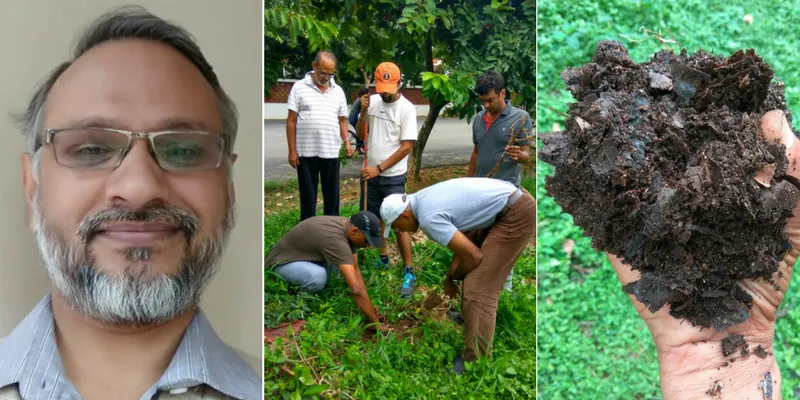
The managing committee of Rainbow Drive started promoting waste segregation as early as 2006. It also started composting the wet waste from 2008 onwards. Every household of the 270 homes at Rainbow Drive today follows the '2bin1bag' model of segregation. Residents keep the segregated waste in front of their houses in the morning and the Rainbow Drive staff goes door to door collecting it in purpose-built trolleys. The segregated wet waste is then brought to the composting site.
Padma Patil (43), a resident of Purva Venezia, began segregation and composting when she moved into the apartment in 2012. “On learning the importance of segregation and composting from newspapers, I involved myself and other residents in these activities.” About 6-8 tonnes of dry waste, collected from 1,300 houses in the complex, is divided into 16 varieties and sent to be recycled every month.
“Composting is an activity that benefits all and it is a great uitlisation of time,” says Padma. Since 2012, 120 tonnes of wet waste composted at Purva Venezia has been sold to farmers, with 40 tonnes used for their own landscaping. Apart from this, the apartment also has a group of 36 members that runs other green initiatives.
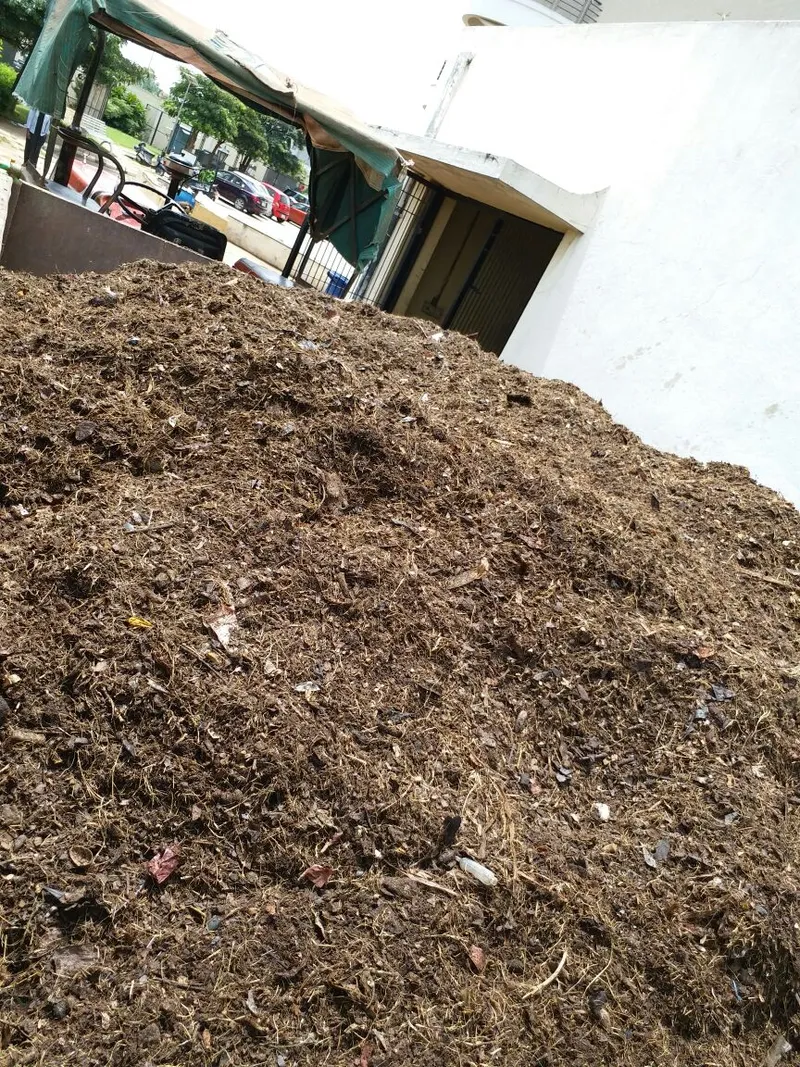
Neelchal Agarwal (37), from Shree Prakriti Apartments, shared her concern towards filth and garbage and has managed to make an impact beyond her own apartment.
I was surprised when I learnt that, if handled properly, only 10 percent of the waste we dispose today needs to go to landfills. The rest can be recycled if disposed and handled responsibly in the right form.
Deciding to lead by example, Neelchal started with responsible disposal of waste, with the first step being ‘segregation at source’. On learning that BBMP had made three-way segregation mandatory, she bought the two bins and one bag and tried to modify her waste disposal to three-way in 2015.
“After six months of in-house composting and multiple awareness programmes, I was successful in convincing the 200 apartments in our society for community composting, and we implemented three-way segregation at source. We compost 120 kg of wet waste per day within our society. Rest of the dry and reject waste goes for proper disposal as well,” she shares. Today, Neelchal conducts several awareness programmes on waste management and also runs a green venture firm.
To do what's right and not what's easy
People generally believe that their waste is BBMP's responsibility, and thus they can hand over the mixed waste to them and forget about it. This initiative of waste management taken up by apartment dwellers is an attempt to change this belief.
According Neelchal, a decentralised system needs to be adopted. “Decentralised waste management will delay the filling of dumpsites to a large extent. If we can implement three-way segregation in every home at the source, and ensure proper pickup and disposal of segregated waste, then all the garbage in and around the city will reduce.”
A campaign for the cause
This initiative by the apartment dwellers in Bengaluru has led to a cleaner neighbourhood and a reduction in the amount of waste dumped in landfills to some degree. If it were to be institutionalised, the benefits will also multiply by the same magnitude. Trying to draw more attention to this cause, Greenpeace India, an environmental organisation in Bengaluru, launched a campaign, ‘Waste to Food’, inviting citizens to participate in the segregating and composting of their waste.
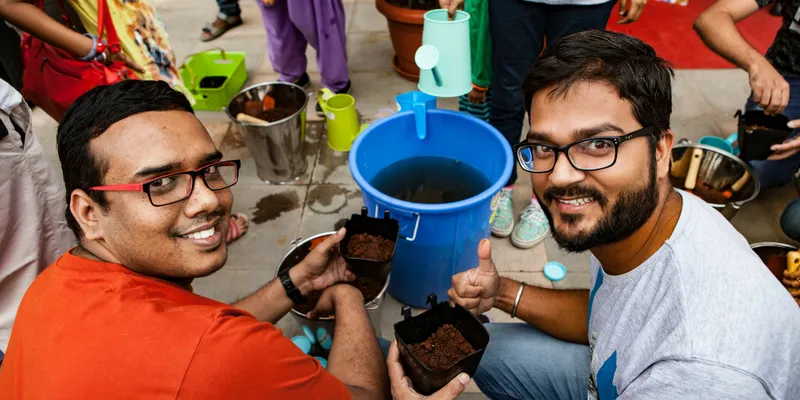
Ravi Chellam, Executive Director, Greenpeace India, says,
The purpose of the campaign is to reduce the scale of the problem of garbage disposal in Bengaluru. Taking responsibility for one’s waste is an important step towards trying to achieve sustainability and environmental conservation. It is important not to externalise such things and expect others, including the government, to do the needful.
All these steps are not only likely to lessen the woes of the once-upon-a-time beautiful Bengaluru, but also improve the situation of villages around the city where garbage is being dumped illegally.
Enter the SocialStory Photography contest and show us how people are changing the world! Win prize money worth Rs 1 lakh and more. Click here for details!







